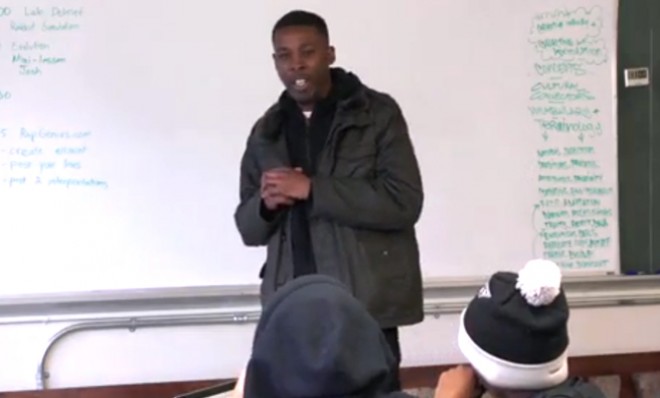WATCH: GZA of the Wu-Tang Clan teaches kids about science (and it's awesome)
"I haven't met any kid who doesn't like hip-hop. But I have met many that don't like science."

A free daily email with the biggest news stories of the day – and the best features from TheWeek.com
You are now subscribed
Your newsletter sign-up was successful

Well, this is great. Rapper the GZA recently dropped by a Bronx classroom to surprise high school students with an unexpected science lesson. (Or so the video tells us.) And better yet: It's nowhere near as corny as you'd expect.
The Genius — who we last saw shooting the breeze with physicist Neil deGrasse Tyson — workshops the class through a few rhymes aimed at helping them better understand Darwin's theory of natural selection. The pilot program, Science Genius, was created by professor Christopher Emdina to make drab course material more relatable by using hip-hop as a vessel.
"Blacks and Latinos make up a very small percentage of scientists in the world," says GZA. "Hip-hop is the voice of the youth. I haven't met any kid who doesn't like hip-hop. But I have met many that don't like science."
The Week
Escape your echo chamber. Get the facts behind the news, plus analysis from multiple perspectives.

Sign up for The Week's Free Newsletters
From our morning news briefing to a weekly Good News Newsletter, get the best of The Week delivered directly to your inbox.
From our morning news briefing to a weekly Good News Newsletter, get the best of The Week delivered directly to your inbox.
(Via Slate)
A free daily email with the biggest news stories of the day – and the best features from TheWeek.com
-
 Trump’s EPA kills legal basis for federal climate policy
Trump’s EPA kills legal basis for federal climate policySpeed Read The government’s authority to regulate several planet-warming pollutants has been repealed
-
 Political cartoons for February 13
Political cartoons for February 13Cartoons Friday's political cartoons include rank hypocrisy, name-dropping Trump, and EPA repeals
-
 Palantir's growing influence in the British state
Palantir's growing influence in the British stateThe Explainer Despite winning a £240m MoD contract, the tech company’s links to Peter Mandelson and the UK’s over-reliance on US tech have caused widespread concern